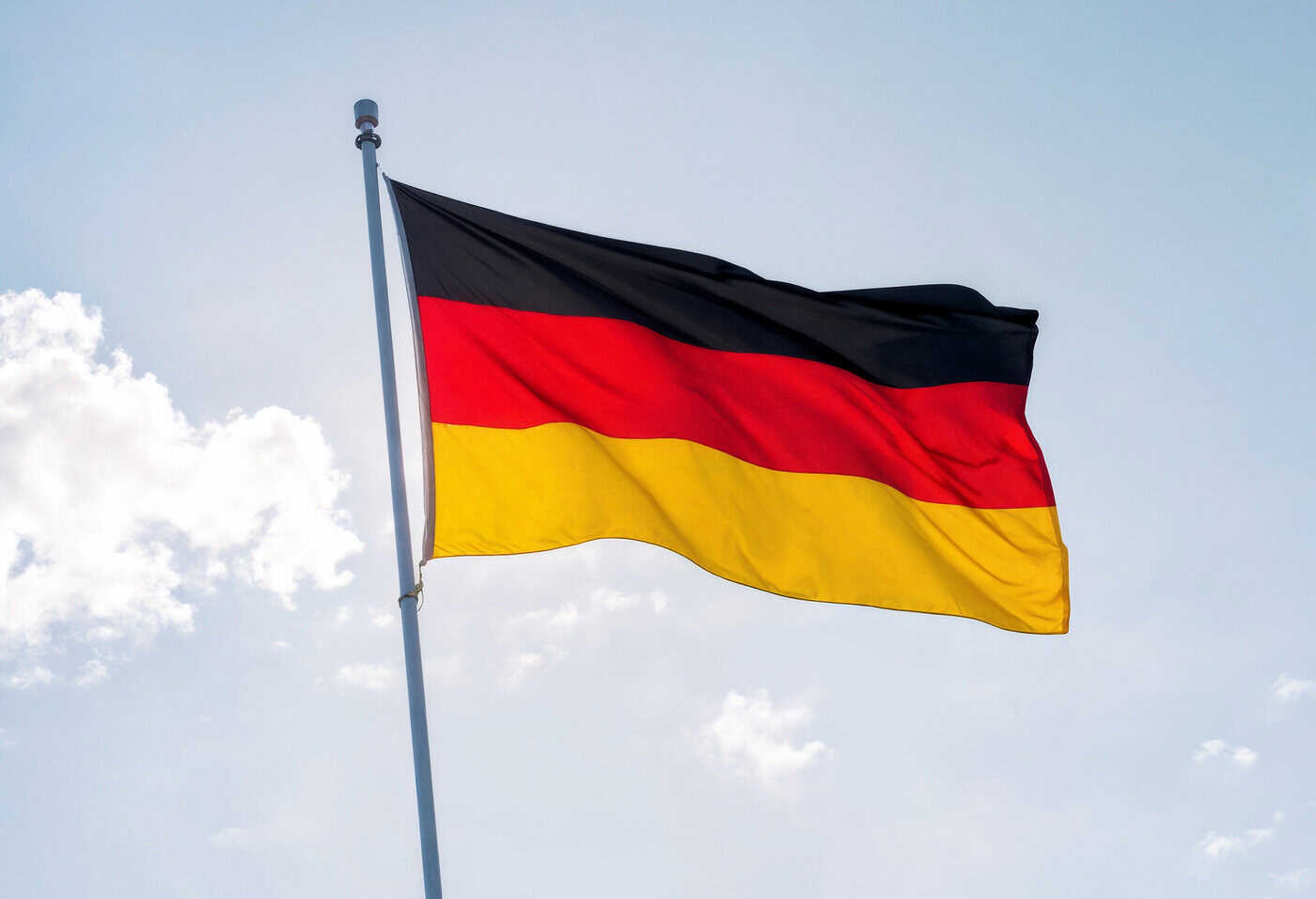
.svg)
Germany is facing a severe skills shortage in certain fields. According to the Federal Employment Agency of Germany, Bundesagentur für Arbeit (BA), approximately 628,000 positions remain unfilled in July 2025, with particularly acute gaps in “shortage” or “bottleneck” occupations, which include IT, skilled trades, and healthcare.
For employers, the lack of qualified local candidates means recruiting international talent is becoming increasingly important. But hiring talent from abroad can feel slow due to bureaucratic procedures. To remain competitive, it’s helpful for German employers to understand the fast-track immigration options available for highly-skilled foreign workers and how to use them effectively.
Shortage Occupations List (Engpassberufe)
Germany maintains an official list of shortage occupations where demand far exceeds supply. Workers in these fields benefit from lower salary thresholds and faster visa approvals.
Examples of shortage occupations (as of 2025) include:
- IT specialists
- Mechanical and electrical engineers
- Nursing and caregiving professionals
- Skilled trades such as plumbers, metal workers, and electricians
For employers, hiring in these fields often means fewer bureaucratic hurdles and faster processing times.
Recognition of Foreign Qualifications
How quickly a visa is processed depends heavily on whether a foreign professional’s qualifications are recognized in Germany.
The process:
- The worker applies for recognition through the Central Office for Foreign Education (ZAB) or relevant chambers
- Authorities assess whether the degree or training is equivalent to German standards
- If only partial recognition is granted, the worker may need additional training or testing
Impact on hiring:
- Full recognition leads to faster visa issuance
- Pending recognition leads to potential delays
The EU Blue Card in Germany
What is a Blue Card?
The European Union (EU) Blue Card is a temporary residence and work permit for highly skilled non-EU professionals who want to live and work in Germany or other EU nations. It’s designed to attract international talent for in-demand roles, particularly in shortage occupations, while giving employers a faster, more predictable hiring option compared to traditional work visas.
Additionally, it offers strong benefits for workers, such as easier family reunification, immediate work rights for spouses, and a pathway to permanent residency, helping companies stay competitive in the global talent market.
With Germany’s ongoing labor shortages, the EU Blue Card has become one solution for filling hard-to-staff vacancies.
- A recognized university degree or equivalent qualification
- A job offer in Germany related to the applicant’s qualifications, with a contract valid for at least six months
- A minimum salary threshold of:
- €48,300.00 per year for most occupations
- €43,759.80 per year for shortage occupations
- €43,759.80 per year for recent graduates whose degrees were completed within 3 years (with Federal Employment Agency approval)
{{tip-component-1}}
Application Process
- Confirm that the candidate meets all Blue Card eligibility requirements.
- The candidate applies for a visa at a German embassy or consulate in their home country, submitting all necessary documents, including their employment contract, proof of qualification, application forms, and passport.
- The Federal Employment Agency reviews and approves the application during the visa process (unless the salary exceeds €48,300, which grants an exception).
- Employers can initiate the fast-track “skilled worker” procedure to expedite the entry process (see below).
- Approved individuals are granted an entry visa to travel to Germany.
- After arriving in Germany, the candidate must promptly register their address and apply for the EU Blue Card at the local foreigners authority before the entry visa expires.
- Employers can assist by helping candidates with document preparation, arrival planning, and booking necessary appointments.
Timeline
- Entry visa: Processing at the embassy typically takes 4–8 weeks, depending on the country and local demand.
- EU Blue Card application: Review by the Local Foreigners’ Authority (Ausländerbehörde, the local immigration office that issues residence permits and processes immigration applications) generally takes 3–12 weeks, with a legal maximum of 90 days under EU rules.
- Fast-Track Procedure: Employers can shorten the process through the coordinated accelerated procedure (see below).
Cost
Standard fees (typically paid by the worker) include:
- Entry visa fee: €75
- EU Blue Card issuance fee: €100
Benefits
For employers:
- Allows employers to quickly hire highly qualified non-EU professionals for skilled roles, especially in bottleneck occupations
- Simplifies and standardizes the hiring process for international talent, reducing uncertainty and administrative barriers
- Makes Germany more attractive as a destination for global talent, helping employers fill vacancies in competitive sectors
For workers:
- Grants the right to live and work in Germany for up to four years, with possible extension and a pathway to permanent residency after as little as 21–27 months, depending on German language proficiency
- Permanent residency may be grafted after 27 months of employment if the applicant can demonstrate “basic” German language skills and knowledge (level A1).
- Permanent residency may be grafted after 21 months of employment if the applicant can demonstrate “sufficient” German language skills and knowledge (level B1).
- Enables family reunification, allowing spouses and children to join the Blue Card holder in Germany, with spouses granted unrestricted work rights.
- Makes job changes within Germany possible, provided conditions remain met (with notification requirements during the first year).
- Offers strong job security and mobility, as the Blue Card is widely recognized across the EU and provides legal protections.
Accelerated Skilled Worker Procedure (Beschleunigtes Fachkräfteverfahren)
Introduced in 2020, the Accelerated Skilled Worker Procedure (Beschleunigtes Fachkräfteverfahren) allows German employers to bring non-EU skilled workers into the country much faster than the standard process. It applies to all work visas, including the EU Blue Card.
How it Works
Employers, authorized by the prospective employee, apply at the Foreigners’ Authority. The authority coordinates all necessary administrative steps (such as recognition of qualifications, approval by the BA, and visa appointment scheduling). While the procedure does not guarantee a visa, it can reduce visa processing times from several months to just a few weeks.
Benefits
- Significantly reduces visa and work permit wait times, making it possible to fill vacancies quickly and minimizing business disruptions.
- Reduces bureaucratic complexity by consolidating steps and providing a single point of contact, with authorities advising and guiding the employer through the process.
- Secures top talent before competitors, since professionals are more likely to accept offers with a clear, quick relocation pathway.
- Offers predictable hiring timelines, giving companies more control and certainty in workforce planning.
How to Apply
To pursue the Accelerated Skilled Worker Procedure as a German employer, follow these steps:
- Authorization and Preparation:
- Obtain a power of attorney from the incoming skilled worker authorizing you to act on their behalf for the procedure
- Collect the worker’s passport copy and proof of their professional qualifications
- Initiate the Process at the Foreigners Authority:
- Submit the application — including the power of attorney and documents — to your federal state’s central or main foreigners authority (Ausländerbehörde).
- The authority will advise you on required steps, involve other necessary authorities, and outline responsibilities for all parties.
- Sign a Formal Agreement:
- Conclude an agreement with the Foreigners Authority, detailing your, the employee’s, and the authorities’ duties.
- Pay the €411 processing fee
- Qualifications Recognition:
- The foreigners authority will initiate the recognition or equivalence check of the foreign qualification, which should be processed in around two months, provided all documents are in order.
- BA Approval:
- The foreigners authority then secures the BA’s approval for the employment, ensuring the job is in line with regional or collective agreement standards. If the BA does not respond within a week, approval is automatically granted.
- Preliminary Approval and Visa Application:
- Once all requirements are met, the authority issues a “pre-approval” letter for the visa.
- Send this pre-approval to the skilled worker, who may then secure an expedited visa appointment at the German embassy or consulate abroad (within three weeks).
- Once the appointment is complete, a visa decision should be made within three weeks.
Cost
Standard fees (paid by the employer) include a €411 processing fee.
{{tip-component-2}}
Timeline
A well-prepared case using the fast-track route can move from job offer to visa decision in approximately 2–3 months, while the traditional route frequently takes 4–6 months or more due to less set deadlines and slower appointment allocation.
Overall, this procedure is especially valuable for employers facing labor shortages to easily recruit and relocate international talent more quickly.
Practical Tips for Employers
Navigating Germany’s immigration system can be complex, especially since responsibilities are shared between federal and state authorities. To improve hiring timelines, employers can:
- Start early: Begin the recognition and visa processes as soon as a candidate accepts an offer.
- Use the Accelerated Skilled Worker Procedure for urgent hires.
- Work with local chambers and authorities to smooth recognition and approval steps.
- Set realistic expectations with candidates about timelines and document requirements.
- Consider professional legal support if recruiting at scale or across multiple states.
Bottom Line
Germany’s talent shortages make fast-track immigration tools like the EU Blue Card, Accelerated Skilled Worker Procedure, and shortage occupation pathways more important than ever. Employers who understand these processes and prepare early can gain a competitive edge in hiring global talent.
{{cta-component-center-aligned}}
For IT professionals, at least 3 years of relevant experience in the past 7 years can substitute for a degree if all other requirements are met.
If recognition or approvals are not granted, or the visa is denied, the fee is non-refundable.
.png)
.png)
.png)







.jpeg)

.svg)
.avif)